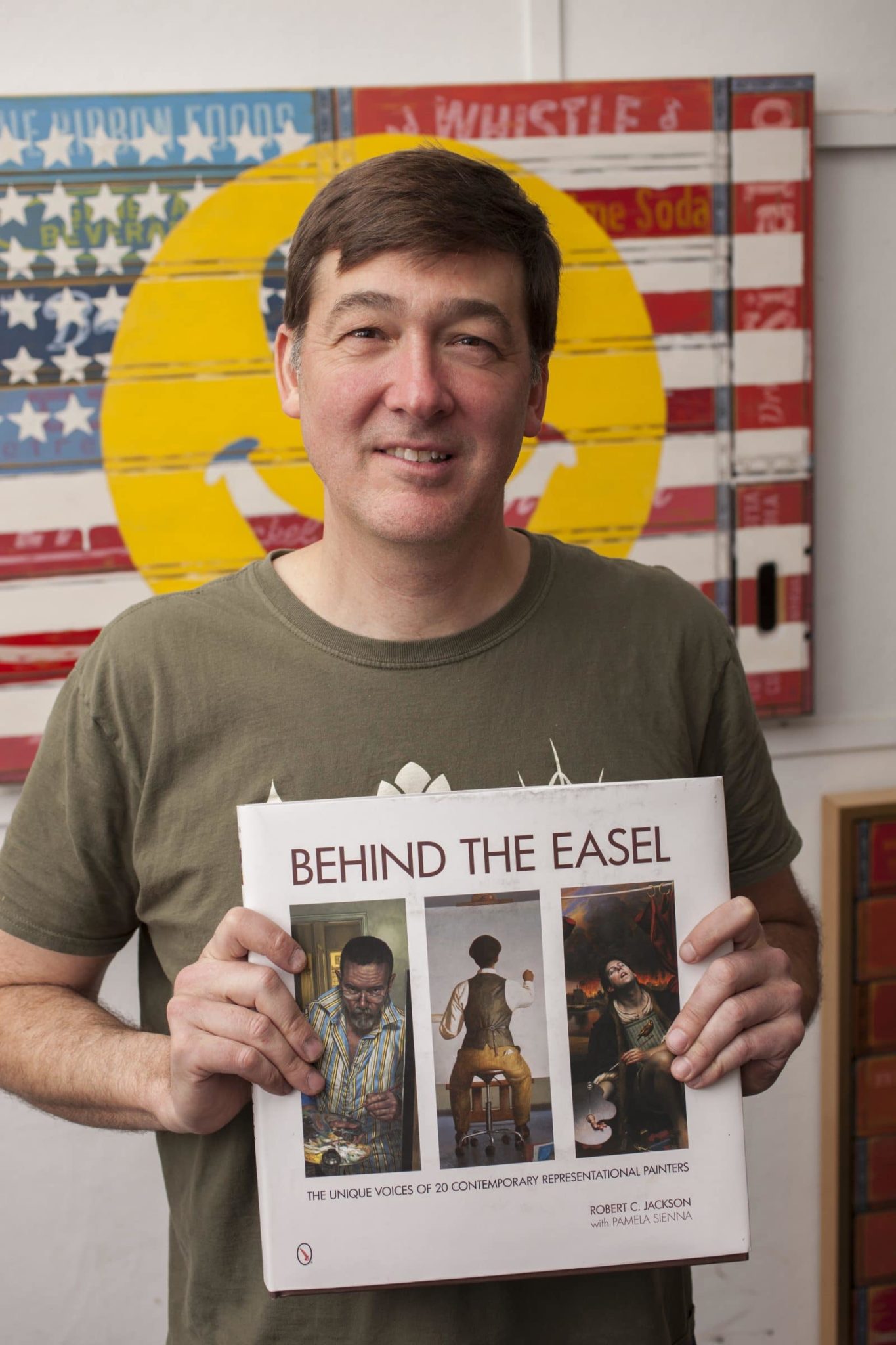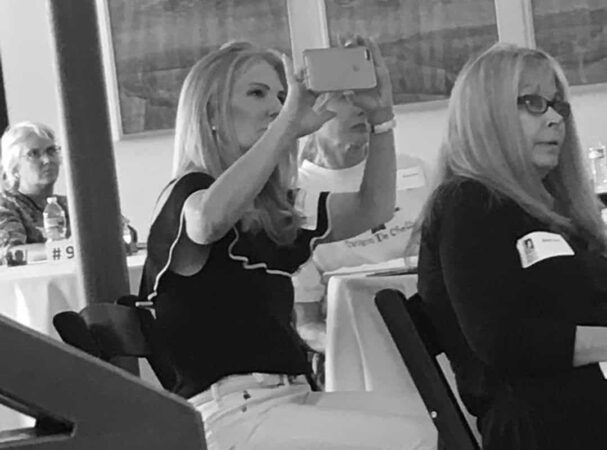“You can’t make full time money doing part time work. I paint every day.” – Robert C. Jackson
Robert C. Jackson (or Bob, as he goes by in conversation) is a painter who uses his subject matter of balloon dogs, Oreo skyscrapers, and toy dinosaurs to highlight the satirical complexities he sees in the world. He has interviewed 20 contemporary representational artists for his book Behind the Easel, around which the Delaware Museum of Art is forming an exhibition this Fall. Bob explains exactly what it means and digs into what it takes to be a five day a week working artist.
This is such an amazing talk that the topics are best expressed mainly as quotations from Bob himself:
Getting Started
- “I was surprised at how many rules people do have – I thought art was supposed to be open-ended.”
- “I think it’s up to other people to label you.”
- “Most artists never talk about business and, as a result, most artists never make a living from their art.”
- If art schools were judged by how many of their graduates made a living from their art: “I couldn’t fathom an engineering department graduating people and saying the majority of our people never get jobs.”
- CHF and the implied dual major of art and business.
- “I needed to work five days a week painting to make five days a week salary.”
- “I thought when I jumped into this career, that there would be a lot more peers.” (who make art as their sole living)
- “There are no do-overs…. When you make art as your sole living, you’re highly motivated to make it work.”
- “I don’t feel like there’s a lot of luck in (making a living as an artist); there’s a lot of effort and work to make it happen.”
- “I can’t believe how little artists are willing to hustle; …as soon as you let your career go stagnant, it’s ending.”
- “It’s not like people say that when the artists die they get more famous; when they die, they die.”
Running Your Business
- “If you can buy someone cheaper that looks the same, why not do it? Uniqueness is the biggest thing.”
- “The last gallery you should approach is the one with work that looks like yours.”
- Making “art that screams for attention.”
- “I’m not going to paint without a concept or a narrative.”
- “Realize, when you paint, there’s an audience in the room.”
- “I need 30 sales a year…”
- “One of the giant taboos was humor; you’re certainly not supposed to do humor with a still-life, but I’ve had a lot of fun with it.”
A Practical Education
- “I didn’t go to art school; I learned by going up to New York and going to art shows.”
- “I have never had a collector or a gallery ask me where I got an art degree. They look at my work.”
- “It matters much more who the teacher is; the degree means nothing, but the learning means an awful lot.”
- “As for working in the marketplace, (art schools) aren’t teaching that at all.”
Selling Your Work
- Keep nothing sitting in inventory. The most expensive mistake is keeping your costs tied up in inventory.
- Showrooms and selling one of a kind work: “Art is still a visible, tactile experience.”
- “The galleries are people like you and I; artists are notoriously difficult. The galleries are my salespeople – my representatives.”
- “Most artists underprice themselves; I don’t think they do the math.”
- “No one is chasing you down. If you sit and wait for a gallery to call you or someone to discover you, no one comes knocking at your door.”
- “You’re remembered by the bigger pieces.”
Lastly
- Why Bob wishes he was The Flash.
- Why Bob likes podcasts (like this one): “I love what I do, but it’s one isolating career… Listening lets me glean little tidbits of what’s working for other people.”
- For more on Bob and his work, visit RobertCJackson.com









Very good advice here because it’s practical. So many artists don’t understand the practical, business aspects of being an artist…in the business of creating art. When I was young I made up my mind to become an illustrator and that’s what I did. I dedicated my time and energy to doing that…I love it. I’m then wanted to create my own paintings so I did and started entering competitions and showing regionally and am now approaching galleries. The point is “I” did that..no one else. As Robert says, no one is waiting to get into your studio and buy all your work or discover you. It’s about how much YOU are willing to put in. If a door is closed either open it or look for another door. Look at anyone who is successful in any field…they worked to achieve success they did not wait for it to find them. If you find yourself surrounded by all of your finished work and works in progress it’s time to think about business and marketing.
Thanks for the very helpful and illuminating podcast. Pragmatically inspiring. 🙂
Thanks Jason! We’re glad you enjoyed!
Thanks Steven for your wise words. You raise a good point that it is about how much you put into it, but sometimes people miss that thinking that they will be ‘discovered.’